




 |
   |
 |
 |
For Nearby Stars (2001, 41.43) ***/T |
|
| Flypaper The Flood Flame Sleepwalking Ten Years From Tomorrow Perfumigation American Car Eraser |
Tied From the Ceiling Wave Untitled |
|
Current availability:
Mellotron used:
VPN (originally Very Pleasant Neighbor) released two albums, the second being For Nearby Stars, the kind of indie record that aspires towards powerpophood, yet never quite achieves its goal. It's at its best on opener Flypaper, Perfumigation and American Car, perhaps, but, ultimately, fails to take off, barely scraping those three stars.
Charlton Pettus plays what sounds like real Mellotron, with flutes and strings on Flypaper and wobbly flutes on The Flood, although that seems to be our lot. Incidentally, final track Untitled is an answerphone message after a several-minute gap, removed from the timing above. Also incidentally, Pettus went on to become a touring member of Tears for Fears and, seemingly, a thriller writer.
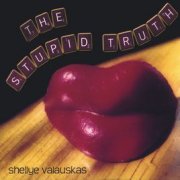 |
The Stupid Truth (1997, 39.26) **½/½ |
|
| Keep it Safe Blame Imaptiently Lie #1 Secret Catch Your Breath Obvious Anything |
Coward Somebody Said (You're in Over Your Head) |
|
Current availability:
Mellotron used:
Shellye Valauskas' debut, 1997's The Stupid Truth, is a pop/rock singer-songwriter effort, inoffensive, yet bland, at its best on the punchy Secret and closer Somebody Said (You're In Over Your Head). I'm sure it's all very heartfelt, but I'm afraid it left me cold.
Dean Falcone plays what I presume is Q Division Studios' Mellotron (I believe they had an M400 at the time), with background strings on opener Keep It Safe and, er, background flutes on Anything, although were it not for the Q Division connection, I'd be tempted to throw this into 'Samples'.
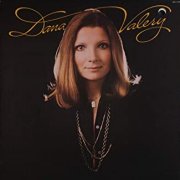 |
Dana Valery (1975, 28.57) ***/TT |
|
| I'd Love You to Want Me Solitaire Play With Fire Power to All Our Friends I Never Had it So Good Ob-La-Di, Ob-La-Da On Fire for You To Be Alive |
Music and My Man Many Rivers to Cross |
|
Current availability:
Mellotron used:
Italian-born, South Africa-reared Dana Valery Catalano released her first album in 1962; arguably, she's best known for her brief '60s career, although she released another three albums the following decade, the last being '75's Dana Valery. Consisting mostly of covers (the two holdouts being co-writes), it's a pretty mainstream effort, despite the participation of two members of Mountain, Leslie West (in the producer's chair) and drummer Corky Laing; a comment on Discogs states, "This album was clearly recorded at the same sessions as West's The Great Fatsby. The same label, same studios, same musicians, engineers etc." West makes his presence felt, not least with his b/vs on a surprisingly decent take on Ob-La-Di, Ob-La-Da and guitar leads on Solitaire and (on bottleneck) To Be Alive, amongst others. Better tracks include her take on The Stones' Play With Fire and those two co-writes, To Be Alive and the funky Music And My Man, although the decision to record a version of Cliff Richard's horrible Eurovision entry from a couple of years earlier, Power To All Our Friends, was an error.
Howie Wyeth on Mellotron (as on The Great Fatsby), with choirs (under real voices) on opener I'd Love You To Want Me, cello and string parts on Play With Fire, a major strings part on I Never Had It So Good and background strings on Music And My Man. Well, this could've been so much worse; I'm tempted to say that without West's involvement, it would've been, so thank you, Leslie, not least for your production decision involving the Mellotron.
See: Leslie West
 |
And Then There is Silence (2000, 65.14) ***½/TT½Fields of SorrowLike a Whisper Tell Me a Story Come Home Reaching for Angels Silence Within She Will Dance No More Autumn Rain |
Current availability:
Mellotron used:
Valinors Tree's second album, And Then There is Silence, is a marked improvement on their debut, Kingdom of Sadness (with sampled Mellotron), with fewer metal stylings this time round, both vocally and in the guitar department. The Anekdoten comparisons still stand, though Valinors use far more of John Lönnmyr's piano, giving their sound an identity of its own. Actually, the more of this album I hear, the more impressed I am, especially compared to its very ordinary predecessor. They've learnt to pace themselves, use keyboards imaginatively, sing properly... There's trumpet on a couple of tracks and Reaching For Angels even uses sampled drum loops and pseudo-analogue synth burbles, proving that the band are by no means stuck in the past.
They borrowed The Moor's Kenneth Magnusson's Mellotron first time round, then only sampled it. This time, they actually recorded the thing, with strings on Like A Whisper and She Will Dance No More, very upfront flutes on Tell Me A Story and choirs on Silence Within, although most of their use is fairly background, leading to a low-ish 'T' rating. So; while not a classic, And Then There is Silence is worth hearing, though not necessarily for the Mellotron.
See: Samples etc.
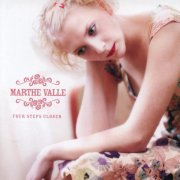 |
Four Steps Closer (2004, 14.58) **½/T½Where Are You Now?Call Off the Day Better Off Without it Capa City |
Current availability:
Mellotron used:
Marthe Valle's debut release, 2004's Four Steps Closer EP is, I suppose, pleasant enough in its own way, that way being 'rather drippy singer-songwriter stuff'. Argue with me. I dare you. Any best tracks? Maybe the acoustic Call Off The Day, but none of it's very inspiring, unless mediocrity's your bag.
Despite seemingly playing Mellotron samples on several of his productions, Lars Lien appears to be using the Real Deal here, with flutes and strings all over Better Off Without It, well arranged and played. He said, looking for something nice to say about this terribly dull record.
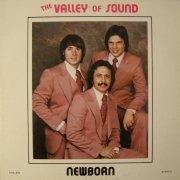 |
Newborn (197?, 34.50) *½/TTI Look at the SunHow Sweet it is While I'm Away When You're Smiling - J'Attendrai Butterfly Rock Show 1950's-60's |
Current availability:
Mellotron used:
Valley of Sound were one of doubtless many, many thousands of crummy functions bands that littered the musical landscape in the '70s, in the days when people were prepared to pay a real, live band to play their wedding/bar mitzvah/funeral, rather than employ a DJ. As a result, a whole generation of musicians were ruined by playing this crud for filthy lucre rather than getting out there and doing something original. Actually, it's not just the unoriginality I object to so much - plenty of bands are unoriginal, even (especially?) ones who aren't trying to be - but the appalling arrangements these purveyors of cheese foisted on the general public. Mind you, said public probably deserved everything they got, bopping about at their nephew's wedding, pretending they're having a good time and groping their hot sister-in-law during the slow ones.
So, what does this abomination actually sound like? Every bit as bad as you can imagine, is the short answer. Unbelievably, three of side one's tracks are band originals, utterly horrible, as are their stabs at two covers; I particularly like the bit in When You're Smiling when the singer smiles, laughs, then cries while he's singing, to match the lyrics. Truly jaw-dropping. The real meat'n'potatoes of the album lies on side two, though. A near-twenty minute live medley of, well, just about everything you didn't want to hear again from the '50s and '60s, played with grim determination by this be-suited bunch of goons, dodgy on-stage harmonies and all. Not to mention their 'risqué' bit in the middle, where they amend a few lyrics to vaguely daring effect. 'Put your legs on my shoulders' indeed. This really has to be heard to be believed, although I doubt if I'll ever be able to bring myself to play it again.
And why is this drivel here, I hear you ask? Why d'you think? My excellent informant correspondent Mark supplied me with a copy of this horror (which cost him all of ¢25), as he noticed a credit on the rear sleeve for Mellotron, played by wonderfully moustachioed singer/keyboardist Garé Rex (I kid you not). It finds its way onto two of their three originals, with full-on 'orchestral replacement' strings on opener I Look At The Sun (sample lyric: 'I look at the sun and notice it's shining down on everyone') and flute and string parts on cheeso ballad While I'm Away, easily the best thing about either track.
So; how easily are you going to find this? I mean, why would you? It's deeply appalling, even worse than, say, Brit efforts Triple Cream or the better-known Candlewick Green. Shockingly, there are actually aficionados of this stuff out there, some of these albums changing hands for top dollar. Who knows, maybe Mark's ¢25 purchase would sell for 50 bucks plus? Or maybe not. Anyway, should you stumble across a copy at a yard sale or the American equivalent of a charity shop, only you can decide whether or not to shell out your hard-earned on it. I can only stand back and cry with laughter.
 |
La Vieille École [as Valois/Jodoin] (1976, 35.47) **½/T |
|
| Bonne Nuit Beaux Reves Incognito Mon Pipi Dans Ton Affaire Lemonstre Occis-Mental Chez Mary-Ann Dans un Parc Clarinette L'Escalier |
Je N'Sais Pas Comment Faire Ca Relaxe Mon Ami Longtemps is Coming |
|
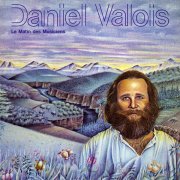 |
Le Matin des Musiciens (1979, 40.56) ***/½ |
|
| Citoyen de la Terre L'Héritage Suite des Îles Solitude Tu Parles Marie C'Était Mensoge, il Faisait Nuit Le Matin des Musiciens Retiens-Moi Pas |
Chanson pour Toi Et Comme Déjà Je l'Aime |
|
Current availability:
Mellotron used:
Daniel Valois (1948-2017) and Alain Jodoin released their sole (?) joint work, La Vieille École, in 1976, the end result almost defining mid-'70s pop/rock, French-language or otherwise, at its least irrelevant on Dans Un Parc, Je N'Sais Pas Comment Faire and closer Longtemps Is Coming. Valois plays Mellotron, with a few seconds of strings on Incognito's fadeout, upfront strings on Dans Un Parc and a flute solo on L'Escalier. And could someone please tell me what's going on with that awful sleeve? It must've put off more potential buyers than it attracted.
Three years on, Valois' solo effort, Le Matin des Musiciens (clearly riffing on Pauwels and Bergier's Le Matin des Magiciens/The Morning of the Magicians), could almost be described as progressive; song-based prog, perhaps? It's at its best on Solitude, the title track and gentle Rhodes ballad Et Comme Déjà Je L'Aime, although the whole, appropriately, lacks a certain je ne sais quoi. Harmonium's Serge Locat plays a lush, yet all too brief Mellotron string part on C'Était Mensoge, Il Faisait Nuit; shame it wasn't used a little more.
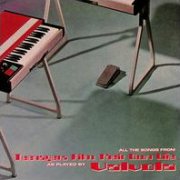 |
Teenagers Film Their Own Life (1996, 43.59) **½/½ |
|
| The Guitarmakers Adventure: Era IV Relaxing Mood An Audio Obstacle Course (One Love) Le Blues Ermetique Flashin' Light (Some Girls Like to Disco) He Cried Rainy Day (Left)/Sintetone 2000 (Right) End/Exploring the City of Ghosts |
Yeti's Folk [Unlisted track] |
|
Current availability:
Mellotron used:
Valvola seem to've been a one-off mid-'90s Italian pseudo-lounge project; remember 'lounge'? Thought not. Anyway, Teenagers Film Their Own Life is vaguely amusing, with plenty of period detail, not least the keyboards used, with plenty of Farfisa (or similar) and slightly out-of-place monosynth. Probably the most interesting thing here is Rainy Day (Left)/Sintetone 2000 (Right), which actually seems to be two complementary tracks playing together, panned hard left and right. Or maybe it's just an exercise in stereo separation.
Michele Profeti (from Standarte) plays Mellotron, with faint choirs on Relaxing Mood, but nothing you couldn't live without, frankly. All in all, an attempt to capture the zeitgeist that only partially succeeds and sounds rather dated over a decade later and with next to no Mellotron, you'd be wise to say 'no'.
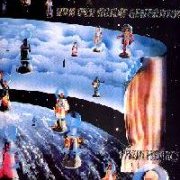 |
Pawn Hearts (1971, 45.08) *****/T |
|
| Lemmings (Including Cog) Man-Erg A Plague of Lighthouse-Keepers Eyewitness Pictures/Lighthouse Eyewitness S.H.M. Presence of the Night |
Kosmos Tours (Custard's) Last Stand The Clot Thickens Land's End (Sineline) We Go Now |
|
 |
Still Life (1976, 45.11) ****/½PilgrimsStill Life La Rossa My Room (Waiting for Wonderland) Childlike Faith in Childhood's End |
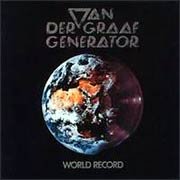 |
World Record (1976, 52.51) ****/TWhen She ComesA Place to Survive Masks Meurglys III, the Songwriter's Guild Wondering |
Current availability:
Mellotrons used:
Van der Graaf Generator were the brainchild of manic vocalist/songwriter Peter Hammill, forming at Manchester University in the late '60s. After an early, fantastically rare single, they split, Hammill recording a solo album that eventually, to his irritation, got itself released as the first VdGG outing. Aerosol Grey Machine (***½) isn't bad, but is rather 'of its time' and bears little relation to the sonic holocaust that was to come. Hammill then regrouped the band properly, recording the stunning The Least We Can Do is Wave to Each Other (****½) and H to He Who am the Only One (****½), the title referring to 'hydrogen to helium', so pronounced 'aitch to aitch ee'.
Their third album in as many years, Pawn Hearts is an incredible piece of work; dark, progressive and manic and that's just the first two minutes of Lemmings. Man-Erg is crushingly brilliant, from Hugh Banton's ripping organ work through David Jackson's screaming saxes to Hammill's, well, Hammill. Many fans hold side two's one track, A Plague Of Lighthouse-Keepers, to be their magnum opus, but I'm not personally sure if it holds up as well as some of their, er, 'shorter' material, but it's still a fairly stunning achievement. Pieced together in the studio, it was unperformable live, so when they turned up at a Belgian TV studio the following year, only to be told "You WILL perform Lighthouse!" they had to film it in bits, splicing it together in the editing suite. There's some suitably insane Mellotron strings on one part of the track, The Clot Thickens, but there can't be more than a minute or two on the whole album. They're an excellent minute or two, though...
Due to all the usual pressures, Van der Graaf split the following year, although all members helped Hammill out in his solo career, leading to the inevitable reformation in 1975. Their first album under the new arrangement was Godbluff (****½), closely followed by Still Life and World Record, before the band fractured again. To my ears, Still Life is the better album and still getting better with every listen, but World Record definitely has its moments. Live, VdGG and solo Hammill were growing ever closer, with the band regularly performing several 'solo' tracks in their set and World Record seems to me to be closer to solo Hammill than band, though I'm sure there are plenty who'd disagree with me. Both albums have Mellotron credited, but there's little audible evidence; maybe a touch of strings on the stupendous Pilgrims on Still Life and a bit of flute on Wondering from the follow-up, but that's about it, really.
VdGG were one of the very best progressive bands of the seventies and one of the very few with a still untattered reputation, almost certainly due to their general intensity and uncompromising attitude towards their music. Almost any of their albums are worth hearing, though the four from The Least We Can Do... to Godbluff are probably their peak. The only bit of Mellotron in their entire catalogue really worth hearing is the short burst on Pawn Hearts, so buy them for the sheer quality of the music on offer. Monumental.
See: Peter Hammill | The Tangent | Eyewitness: A Tribute to VdGG
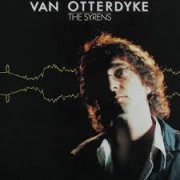 |
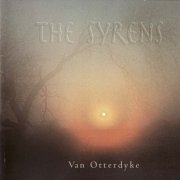 |
The Syrens (1983, 41.28) **/½ |
|
| Syrensong Nobody Loves You You A Lovely Stranger Sad Affair Prelude Hiding in the Dark She's Gone |
Someone Else Interedzo Loving You So |
||
Current availability:
Mellotron used:
Ed van Otterdijk used a more internationally-friendly spelling of his name for 1983's The Syrens, complete with rather scary sleeve art of yer man looking (un)suitably psychotic, of the kind that could easily put off potential purchasers. No wonder some CD reissues changed it. The album clearly aspires to be 'progressive', but actually comes across as a cheesy, Jeff Wayne-style concept (about what?), more Chris de Burgh than, well, anything actually progressive. It has its almost-moments, chiefly when van Otterdijk isn't singing (opener Syrensong, a couple of brief instrumentals), but they're not only few and far between, but not actually worth hearing anyway.
Van Otterdijk plays Mellotron, if barely, with background strings on You and background choirs on Hiding In The Dark (which sounds like a bloody Jadis title, for its sins). I suppose I should've known; this was initially reissued on long-defunct Dutch prog label S.I., which, with a handful of exceptions, is shorthand for 'fucking awful'. Seriously, I've heard some stinkers and this is one of them.
Pixel Revolt (2005, 53.43) ***/TT |
||
| Letter to the East Coast Plymouth Rock Exodus Damage Peacocks in the Video Rain Trance Manual New Zealand Pines Radiant With Terror Continuation |
Dear Sarah Shu Farewell Transmission Angela Dead Slate Pacific The Golden Gate CRC7173, Affectionately |
|
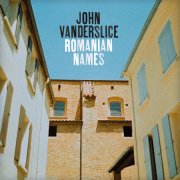 |
Romanian Names (2009, 37.18) ***/0 |
|
| Tremble and Tear Fetal Horses C & O Canal Too Much Time D.I.A.L.O. Forest Knolls Oblivion Sunken Union Boat |
Romanian Names Carina Constellation Summer Stock Hard Times |
|
Current availability:
Mellotrons used:
Pixel Revolt is ex-MK Ultra John Vanderslice's fifth album, although I believe if anything, he's known more for his production work; his style is a sort of indie take on the singer-songwriter thing, although that doesn't really describe it very well. Most of the album just drifts along, with the lyrics (Trance Manual, Angela) standing out more than the music, to be honest, although going by online reviews, Vanderslice is very popular, albeit in a non-mainstream kind of way. Mellotron (from Vanderslice and Matt Henry Cunitz) on three tracks, all credited properly (hurrah!). Flutes and (lesser) strings on Trance Manual and fairly unusual vibes on Angela, leaving Exodus Damage as the album's Mellotron highlight, with a major string part, backed with flutes, plus faint choir and (allegedly) pipe organ, though I can't hear the latter for the life of me.
Vanderslice's 2009 effort, Romanian Names, is a mixed bag of indie-ish singer-songwriter material, better tracks including opener Tremble And Tear, the E-Bow-driven D.I.A.L.O. and brief instrumental Forest Knolls. Cunitz is credited with Mellotron again, but I'll be buggered if I can work out where he uses it, all potential sounds (vibes, low strings) being covered by real instruments.
So; maybe one for the singer-songwriter fan who doesn't mind a few modern production tricks? Pixel Revolt isn't bad on the Mellotron front, though not essential, although you're wasting your time with Romanian Names. Middling.
See: MK Ultra
 |
Sofa Livin' Dreamazine (1991, 44.31) **½/½ |
|
| Wilbur and Orville Kerosene Colorbomb The Jugular Grapevine She Cries Diamonds Heavy Rotation Happy |
Automatic Transmission Naked on a Train |
|
Current availability:
Mellotron used:
Vanilla Trainwreck were a N. Carolina-based band, slotting somewhere in between indie and grunge, stylewise, which hasn't allowed their debut, 1991's Sofa Livin' Dreamazine, to age that well. For all the fuzz and dirt they put into it, it's a strangely lifeless record, vaguely psychedelic closer Naked On A Train being the least dull thing here, which isn't really saying that much.
Producer-of-the-day Sean Slade (Dinosaur Jr, Sebadoh, Blackfish) is credited with Mellotron, but the only even slightly possible use is some of the assorted sounds on Naked On A Train, which could, frankly, have been made by almost anything. I'd take that as a non-recommendation, then.
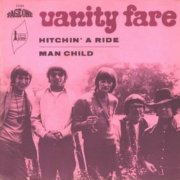 |
7" (1969) **½/TT Hitchin' a Ride Man Child |
Current availability:
Mellotron used:
The Kent-based Vanity Fare (ho ho) had a handful of hits, the biggest being Hitchin' A Ride, from late 1969, chiefly due to cracking the US charts. The recorder and piano-driven effort is pretty typical of the era's lightweight pop, almost certainly the reason this isn't as fondly remembered as some of its contemporaries. The flip, Man Child, is rather better, in a toytown pop kind of way, but I can't imagine it would be anyone's first port of call when compiling the sub-sub-sub-genre.
Someone, probably the band's new keyboard player Barry Landemen, layers Hammond and Mellotron on Man Child, with an overt, quite clunky string melody that actually improves the song no end. Both sides of the single appeared on 1970's rather disjointed Early in the Morning, essentially an uncredited greatest hits, but I've no idea whether you can find Man Child on CD.
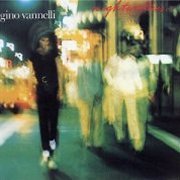 |
Nightwalker (1981, 36.35) ***/TNightwalkerSeek and You Will Find Put the Weight on My Shoulders I Believe Santa Rosa Living Inside Myself Stay With Me Sally (She Says the Sweetest Things) |
Current availability:
Chamberlinn used:
It seems Gino Vannelli has been around since the early '70s and is still making music today. He unashamedly describes himself as 'pop' and going by 1980's Nightwalker, it's difficult to argue with this; a very musicianly, soul and jazz-influenced variety of pop, although unfortunately somewhat dated by modern standards. Vannelli has an amazing voice, however and the more soulful material here (Put The Weight On My Shoulders, Sally) shows it off to great effect.
It seems Vannelli likes to keep things in-house, having worked with his brother Joe throughout his career, while another brother, Ross, co-produces here. Joe is credited with 'electric piano, acoustic piano, organ and synthesizer', strangely neglecting to mention the Chamberlin I'm assured is on the album. Several tracks feature real strings, but the Chamby can quite clearly be heard providing the string line on the opening title track, although the use on Put The Weight On My Shoulders and Sally (She Says The Sweetest Things) isn't either that upfront or even entirely confirmed, though the strings sound more Chamby than real. Living Inside Myself has been confirmed for me, although it's almost indistinguishable from the real thing...
So; a very musical album, but also a very mainstream one that really isn't going to appeal to most listeners at the rock end of the spectrum. Your jazz fan will find things to praise here, but the rest of you would really be advised to steer clear, despite the obvious quality of the material. Only one really obvious Chamby track, too, so I wouldn't really bother for that, either.
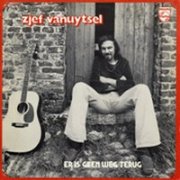 |
Er is Geen Weg Terug (1973, 47.27) ***/T |
|
| Er is Geen Weg Terug Ballade Van een Oude Vriend Zal ze Dan Nog Voor Me Zorgen Het is Nog Niet Laat Misschien Vannacht Lusi Toch is ze Zo Lief Als Je Zomaar Weg Zou Gaan |
De Idioot van de Vrede Als de Dood Toch Ooit Moet Komen Langs de Spiegels van de Tijd Omstreeks Middernacht |
|
Current availability:
Mellotron used:
Zjef Vanuytsel is a Flemish singer-songwriter who released his first album, De Zotte Morgen, in his early twenties, in 1970. Its slightly belated follow-up, '73's Er is Geen Weg Terug (There is No Return), is actually a quite affecting album of mostly acoustic material, which manages to make its point even when you don't understand the words. Best tracks are probably Ballade Van Een Oude Vriend, Het Is Nog Niet Laat and the beautiful Als De Dood Toch Ooit Moet Komen, but, amazingly for the genre and era, nothing here offended me.
Jean Blaute plays Mellotron, with a chordal flute part and cellos on Ballade Van Een Oude Vriend and a beautifully arranged string part on Lusi, although the harmony flutes on Zal Ze Dan Nog Voor Me Zorgen and the strings on a couple of other tracks are real. Overall, then, a surprisingly decent album, although a long way from a lost prog classic. Worth hearing for fans of '70s acoustic albums, but not really for the Mellotron.
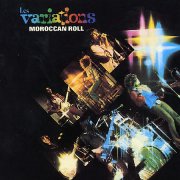 |
Moroccan Roll (1974, 35.14) ***½/TMoroccan RollI Don't Know Why Did it Kasbah - Tadla Growing Stronger Lord (Give Me Money) Leslie Lust Sanglots (Tears) All I Want to Know |
Current availability:
Mellotron used:
Les Variations were a French band of Moroccan Jewish extraction, making for an intriguing smörgåsbord of influences, from the power-trio rock of Cream and Zeppelin to indigenous Moroccan and Sephardic Jewish music. Moroccan Roll (the pun pre-empting Brand X by a year or two and more relevantly) was their third album of four, with its English-language vocals making it accessible to an international audience; the band toured the States at least once and their last two albums were released there. There isn't really a bad track on the record, but Growing Stronger is the best 'rocking' effort and Kasbah - Tadla probably the best at the folk end of the album.
Mellotron on two tracks, from an unknown player, with faint strings on Did It and a more upfront part on closer All I Want To Know, although not enough to make a purchase worthwhile merely for its Mellotronic content. So; an interesting effort, at least partially unlike anything much you'll have heard before, although some of the hard rock numbers are fairly generic. Not much Mellotron, but worth hearing if you're thinking of buying it anyway.
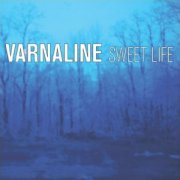 |
Sweet Life (1998, 48.26) **½/½ |
|
| Gulf of Mexico Northern Lights Now You're Dirt All About Love While You Were Sleeping Saviours This is the River Underneath the Mountain |
Fuck & Fight Mare Imbrium Tonite Sweet Life |
|
Current availability:
Mellotron used:
Beginning as Anders Parker's solo project, Varnaline had become a trio by the time they released their fourth album, Sweet Life, in 1998. Bemusingly, I've seen them described as Americana/alt.country, as their sound is quite clearly positioned slightly towards the noisier end of the US indie spectrum, incorporating occasional hints of Neil Young-ish guitar work. Sadly, it's all a bit dreary, to the point where I don't even feel I can recommend any tracks, which is a bit tragic, really. Maybe the closing nine-minute title track? Maybe not.
Parker plays Mellotron, presumably the Magic Shop Studio M400, with occasional strings on opener Gulf Of Mexico. He made one more album with Varnaline, 2001's Songs in a Northern Key, before going solo.
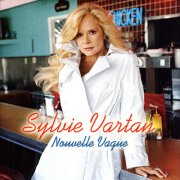 |
Nouvelle Vague (2007, 49.37) ***/0 |
|
| Il est Cinq Heures, Paris S'éveille Nouvelle Vague Le Temps de l'amour Ruby Tuesday Suzanne Attends ou Va-t'en Dans le Souffle du Vent Les Yeux Ouverts |
Ya Ya Twist J'attendrai Drive My Car Chante I'm a Believer Et Je M'en Vais Souvenirs, Souvenirs |
|
Current availability:
Chamberlin used:
Sylvie Vartan is one of those 'overseas' artists of whom the average Anglo-American-centric music fan has never heard, myself included, despite several decades of Gallic fame. She's actually been making records since the early '60s, shockingly, being one of France's original yé-yé girls (a popular strain of '60s French pop, for those not in the know), her subsequent career being largely informed by that remarkable decade. Married to 'the French Elvis' for fifteen years, Johnny Hallyday, she's also worked with later Spooky Tooth member and Foreigner mainman Mick Jones and had songs written for her by Paul Anka, amongst others.
2007's bilingually-punning Nouvelle Vague sums up her '60s-centric work perfectly; a good album, certainly, but it lacks originality, containing a slew of '60s covers, not least The Stones' Ruby Tuesday, Leonard Cohen's Suzanne and The Beatles' Drive My Car, plus French-language versions of Reach Out I'll Be There (J'attendrai) and Then I Kissed Her/Him (Et Je M'en Vais). Then again, why would a singer in her early sixties be bothered about being original? Her intention was clearly to make a good, professional and entertaining album that her fans would enjoy, in which I can say she's been entirely successful.
John Philip Shenale (Tori Amos, Willy DeVille) plays Chamberlin, although as so often, it's effectively inaudible, unless it provides some of the very real-sounding strings on the album. Nouvelle Vague isn't really an album for the international market, more for her domestic audience and Francophiles everywhere, so with no obvious tape-replay work, I can't honestly recommend it, despite its obvious quality.
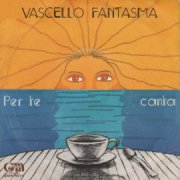 |
7" (1980) ***/T½ Per Te Canta |
Current availability:
Mellotron used:
Other than that Luigi Bruti (then just twenty), later to become a divisional manager in Roland Europe, was a member, I can tell you precisely nothing about Vascello Fantasma, although their name was presumably taken from the Italian translation of Wagner's Der Fliegende Holländer. Their sole release, 1980's Per Te (For You) b/w Canta (Sing), is a very slightly proggy balladic thing, the flip being more upbeat, in a typically Italian folk/pop style. Approach with caution.
Someone (Bruti?) plays distant Mellotron choirs on both sides of the disc, more overtly on the flip, though neither to any major effect. This one comes from Mellotron bigwig Martin Smith, via a chap he knows in Slovenia, who heard about it in Italy. Did I hear someone say, 'tangled webs'?
 |
The Last Live Show (1997, recorded 1978, 78.21) ***½/TTT½ |
|
| The Dead Sea Scrolls Nautical Lullaby Knights The Sporetender Saga Bass & Drums Close Encounters Dumb Ditties The Talking Drum |
Larks' Tongues in Aspic part II Abduction XII 1001 Drums of Vasil Zook Stop That Ship Dumb Ditties 2 |
|
Current availability:
Mellotron used:
Vasil Zook? A short-lived Ohian progressive outfit of considerable obscurity, who apparently formed in order to play a gig four days later. They coalesced in the dying days of 1977, existing for under three months, three of their four members going on to form St. Elmo's Fire in '79. Unlike so many similar, the Zook (may I call them that?) recorded their final live performance in March '78, the self-explanatory The Last Live Show appearing some twenty years later, in 1997. It's sonically poor (good bootleg quality, basically), while the material veers between excellent (opener The Dead Sea Scrolls, later recorded by St. Elmo's, Nautical Lullaby, the reflective Close Encounters, based on the famous five-note sequence from the then-recent film), a couple of Crimson covers and the pointless (the ten-minute ridiculous story/bad blues mashup The Sporetender Saga, the self-explanatory Bass & Drums, Dumb Ditties).
Steve Stavnicky plays Mellotron (and MiniMoog), with octave strings all over opener The Dead Sea Scrolls and chordal choirs towards the end, rolling over into Nautical Lullaby, stabbed string chords and choirs on Knights and strings on Close Encounters, The Talking Drum, Larks' Tongues in Aspic Part II (far more than Crimson ever did) and Stop That Ship. Is this worth the effort? It certainly has its moments (Knights and Dumb Ditties 2 are other highlights), but you'll have to wade through layers of crud, both musically and sonically, to get to them. Buy, rip, save the best bits to a device of your choice.
Official page on Sprawling Productions' site
See: St. Elmo's Fire
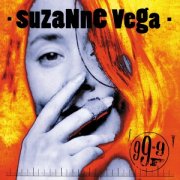 |
99.9F° (1992, 37.42/39.38) ***½/T |
|
| Rock in This Pocket (Song of David) Blood Makes Noise In Liverpool 99.9F° Blood Sings Fat Man and Dancing Girl (If You Were) In My Movie As a Child |
Bad Wisdom When Heroes Go Down As Girls Go Song of Sand [Some versions add: Private Goes] |
|
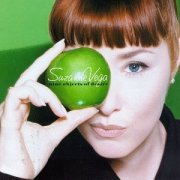 |
Nine Objects of Desire (1996, 39.04) ***½/½ |
|
| Birth-day (Love Made Real) Headshots Caramel Stockings Casual Match Thin Man No Cheap Thrill World Before Columbus |
Lolita Honeymoon Suite Tombstone My Favorite Plum |
|
Current availability:
Chamberlins used:
Suzanne Vega is proof positive that singer-songwriters can still write relevant, tuneful material that doesn't just navel-gaze to the point where the music becomes entirely secondary to the lyrical content. 1992's 99.9F° is her fourth album, produced by the mighty Mitchell Froom, later her husband. It's full of material of the quality of Blood Sings, Bad Wisdom and the title track and while some of her fans threw their hands up in horror at Froom's relatively 'electronic' production, his use of 'period' instruments stops it sounding like a relic, 17 years later. And Richard Thompson guests. Result! I heard a rumour years ago that Froom plays Chamberlin on the album; he's stated that he used one on 'pretty much everything' he produced at the time, so it's hardly surprising. There's a large, composite sound on the Vega/Froom co-write Fat Man And Dancing Girl, but it's as likely to be a combination of organ and synth, but As Girls Go features possible cellos and definite strings, albeit briefly.
As if to prove a point, Froom turns up again on Vega's follow-up, '96's Nine Objects of Desire, by which time they were married, if only briefly. It's another fine singer-songwriter album, possibly at its best on the metrosexual Stockings, Thin Man and Honeymoon Suite, all as much for the lyrics as the music. The only obvious Chamberlin is on Tombstone, showcasing the Chamby's equivalent of the MkII Mellotron's 'moving strings', if only for a few moments. Two fine albums, then, to my surprise, given Vega's ubiquity amongst the dinner party set in the '90s.
See: Mitchell Froom